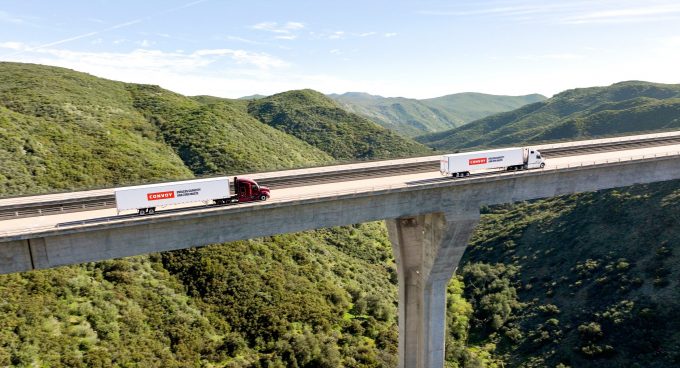UPS talks to lots of customers – outlook? Impossible. Later? Who knows?
UPS SCS – not a pretty sight

The bloodletting in the digital brokerage space is picking up steam: freight brokerages Convoy and Coyote Logistics on Friday both announced staff reductions, blaming adverse market conditions.
And Uber Freight, which slipped back into the red in Q4 last year, confirmed staff cuts in its core digital brokerage business last month, while CH Robinson indicated earlier this month it would cut staffing further this year, following reductions in November.
Convoy is to close its Atlanta office and part with staff in a ...
Maersk u-turn as port congestion increases across Northern Europe
Apple logistics chief Gal Dayan quits to join forwarding group
Maersk Air Cargo sees volumes fall as it aims for 'margin in favour of revenue'
Airlines slash freighter capacity post-de minimis, but 'the worst is yet to come'
Houthis tell Trump they will end attacks on Red Sea shipping
Transpac rates hold firm as capacity is diverted to Asia-Europe lanes
MSC revamps east-west network as alliance strategies on blanking vary
India-Pakistan 'tit-for-tat' cargo ban sparks sudden supply chain shocks


Comment on this article